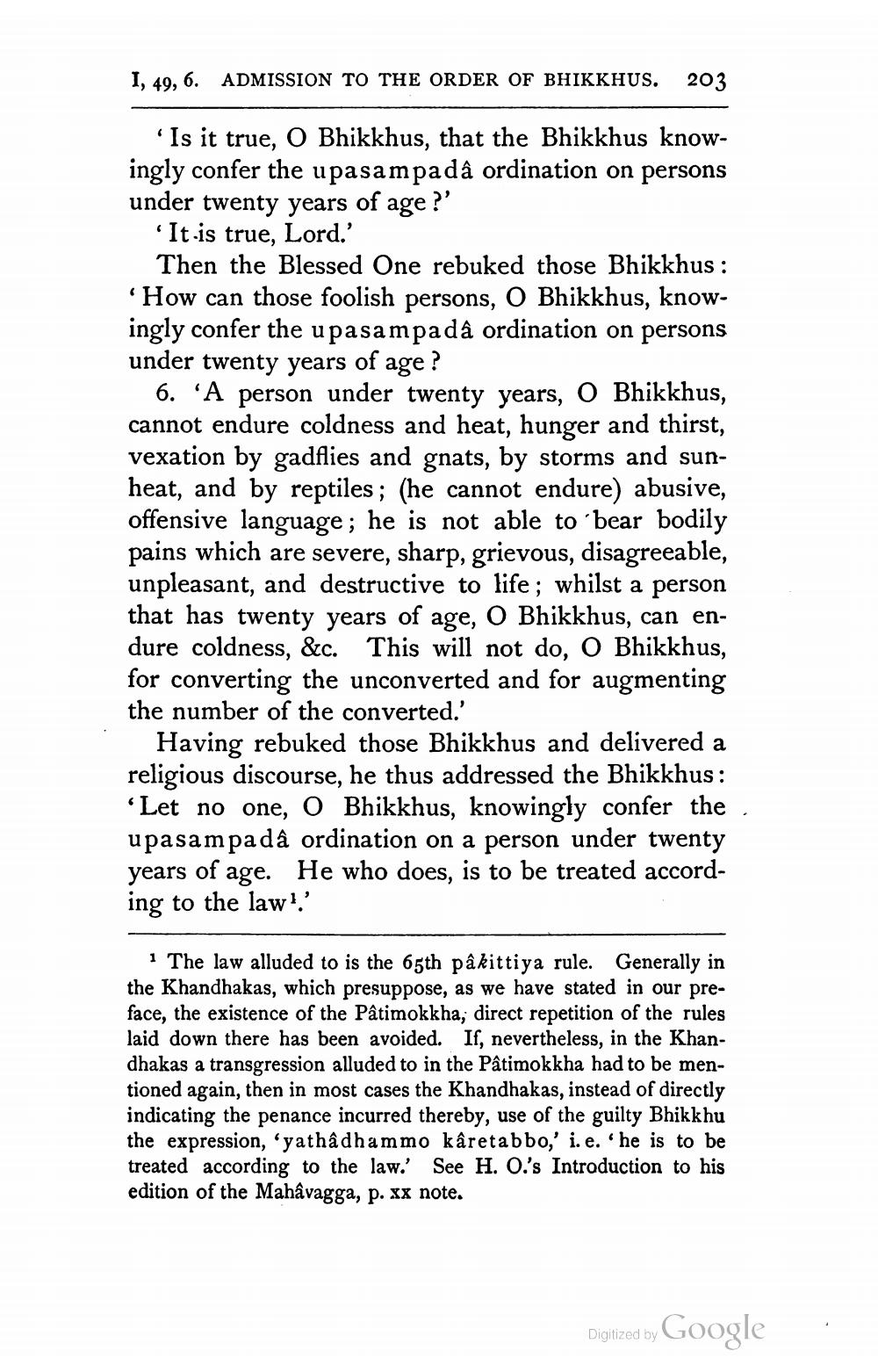________________
I, 49, 6. ADMISSION TO THE ORDER OF BHIKKHUS. 203
'Is it true, O Bhikkhus, that the Bhikkhus knowingly confer the upasampadâ ordination on persons under twenty years of age ?'
It is true, Lord.'
Then the Blessed One rebuked those Bhikkhus: “How can those foolish persons, O Bhikkhus, knowingly confer the u pasa mpadâ ordination on persons under twenty years of age ?
6. 'A person under twenty years, O Bhikkhus, cannot endure coldness and heat, hunger and thirst, vexation by gadflies and gnats, by storms and sunheat, and by reptiles; (he cannot endure) abusive, offensive language; he is not able to 'bear bodily pains which are severe, sharp, grievous, disagreeable, unpleasant, and destructive to life; whilst a person that has twenty years of age, O Bhikkhus, can endure coldness, &c. This will not do, O Bhikkhus, for converting the unconverted and for augmenting the number of the converted.'
Having rebuked those Bhikkhus and delivered a religious discourse, he thus addressed the Bhikkhus: 'Let no one, O Bhikkhus, knowingly confer the upasampadâ ordination on a person under twenty years of age. He who does, is to be treated according to the law?'
1 The law alluded to is the 65th pâkittiya rule. Generally in the Khandhakas, which presuppose, as we have stated in our preface, the existence of the Pâtimokkha, direct repetition of the rules laid down there has been avoided. If, nevertheless, in the Khandhakas a transgression alluded to in the Pâtimokkha had to be mentioned again, then in most cases the Khandhakas, instead of directly indicating the penance incurred thereby, use of the guilty Bhikkhu the expression, 'yathâdhammo kâretabbo,' i.e. he is to be treated according to the law. See H. O's Introduction to his edition of the Mahâvagga, p. xx note.
Digitized by Google
.
Digitized by




